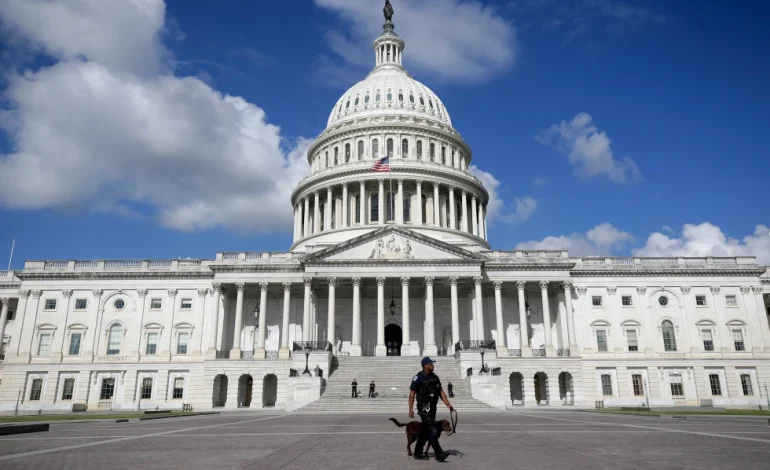Fresh off a monthlong recess and a big summer win on Trump’s tax-and-spending cuts (passed without a single Democratic vote), Republicans return to Washington facing a tougher test: keeping the government open past Sept. 30. That will require either cutting a deal with Democrats—or finding a way around them.
Funding runs out Sept. 30. A short-term continuing resolution (CR) is the only realistic bridge while full-year bills get wrangled. GOP needs Democratic votes in the Senate, and Democrats want concessions after swallowing a keep-the-lights-on bill in March that infuriated their base. The White House keeps clawing back approved money—roughly $9B already rescinded and another $4.9B in foreign aid blocked—giving Democrats fresh reason to balk. Some Dems say Trump is “rooting for a shutdown.”
of stalemates (and presidential flame-throwing at Chuck Schumer), Republicans are mulling rule changes to neutralize Democratic slow-walking of Trump nominees. Expect weeks of backroom math on how far to push.
Sen. Lindsey Graham is pressing a sweeping sanctions-and-tariffs bill targeting countries that bankroll Moscow by buying its oil, gas, uranium and other exports. With 85 senators behind it, leadership still won’t move without a green light from Trump—who hasn’t endorsed it.
HHS Secretary Robert F. Kennedy Jr. appears before the Senate Finance Committee this week to defend his health agenda after ousting the CDC director and prompting high-profile resignations. Expect fireworks over vaccine policy, CDC governance, and agency independence.
Republicans are split over forcing the administration to release more files in the Jeffrey Epstein case. A bipartisan bill from Ro Khanna and Thomas Massie would compel disclosure; victims are set to join a Capitol presser.
The House Oversight Committee will interview former top Biden aides—including Jeff Zients, Karine Jean-Pierre, and Andrew Bates—as it preps public hearings and a fall report.
The idea is perennial; momentum is new. A Senate panel advanced Josh Hawley’s bill to ban individual stock trading by lawmakers—and extend it to future presidents/VPs (with a notable Trump carveout). In the House, members are threatening procedural workarounds to force a vote. Resistance from wealthy incumbents remains very real.
Republican unity is fragile. The summer saga—complete with presidential blasts at Schumer and even fellow Republican Chuck Grassley over judicial “blue slips”—signals more intraparty friction ahead. Appropriators in both chambers bristle at endless CRs and the latest “pocket rescission.”
Democratic strategy flipped. After getting scorched in March for helping avert a shutdown, leaders Schumer and Hakeem Jeffries are telegraphing a harder line, floating demands like rolling back Medicaid/ACA cuts from Trump’s megabill. That’s a long shot—but it plants a flag.
Blame calculus is messy. Traditionally, the side seen as triggering a shutdown takes the political hit. Democrats argue Trump’s approval slide and unilateral rescissions change the optics. Republicans counter that Dems risk empowering OMB to hack away at agencies during a closure.
What to watch in September?
- A “clean” CR—or not. If the White House dares Democrats to oppose a straight extension, do Schumer and Jeffries hold out—or deal?
- Rule-change trial balloons. Does McConnell’s conference (and the parliamentarian) accept tweaks to accelerate confirmations?
- Russia tariffs bill. If Trump stays quiet, do senators push a Plan B vote anyway?
- RFK Jr. hearing fallout. Any immediate moves to delay CDC advisory votes or curtail HHS actions?
- Epstein transparency vote. Does House leadership allow the Khanna–Massie bill to the floor?
Republicans won the summer with a party-line tax-and-spending package. The fall is tougher. Keeping the government open will require votes they don’t control, while nominations, sanctions, and headline-grabbing investigations crowd the calendar. If Congress fumbles the CR, Sept. 30 becomes another Washington self-own—this time with real-world consequences.
The Hill, the Associated Press, and Politico contributed to this report.










The latest news in your social feeds
Subscribe to our social media platforms to stay tuned